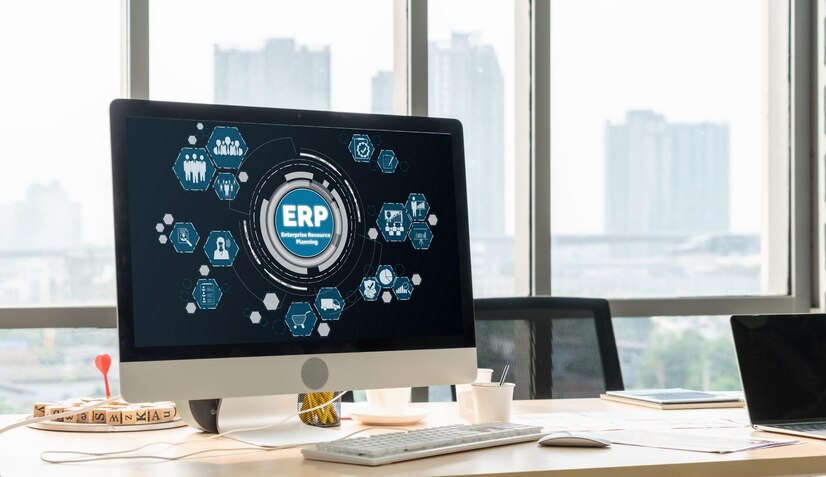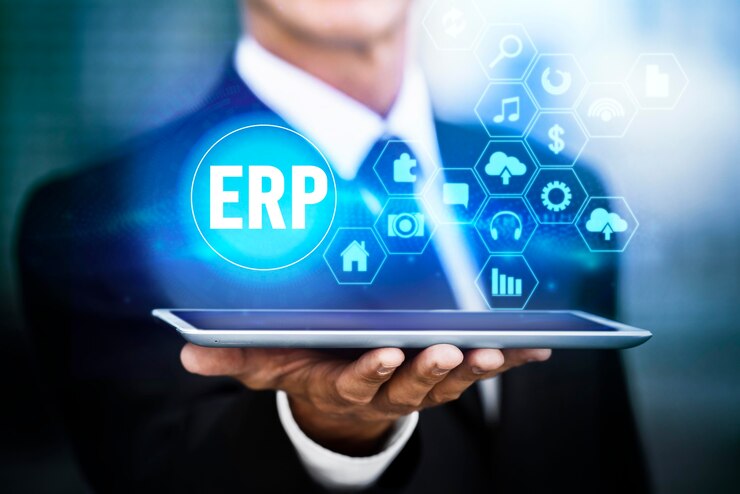
Best ERP System In 2024
ERP systems selection in 2024 is critical to the success of the organization’s strategic direction and operations. These systems therefore ensure automation of procedures, enhanced productivity and supply of vital information. Having many choices, the decision on which type is the most suitable has factors that have to be explained and suppliers that should be reviewed.
Top 14 Best ERP Systems in 2024
-
SAP S/4HANA: Popular for sophisticated analysis solutions with Artificial Intelligence apparatus suited best for large businesses.
-
Oracle ERP System Cloud: HSBC’s services are functional in almost all aspects of finance and feature suitable scale for different industries.
-
Microsoft Dynamics 365: Smooth integration of ERP and CRM functions and ideal for mid to large businesses.
-
Infor CloudSuite: Solutions for particular sectors such as manufacturing and the medical field.
-
Workday erp: Excellent in the field of human resource and also solid financial tools with user-friendly interface.
-
NetSuite ERP: Flexible and comprehensible tool arranging finances, inventories, and orders in the cloud.
-
Epicor ERP: Suitable for production accentuating the supply chain concept with a focus on manufacturing and distribution operations.
-
Acumatica: C/general affordable cloud-based S/ERP with functionality in financial man. , CRM and project man.
-
Sage Intacct: Based on accounting tools, it is more oriented on financial management and has solid compliance for SMEs.
-
IFS Applications: Provides solid asset and service management functions with cloud and traditional, on-premises deployment.
-
Plex Systems: ERP operating on the cloud designed to support manufacturing activities and supply chain processes.
-
SYSPRO: Manufacturing and Distribution industries’ specific ERP solution.
-
QAD Cloud ERP: Concentrates on industries such as automotive and life science and provides multinational merchandising services.
-
Odoo: Free ERP that comes with many features that allow the business users to configure the ERP software easily.
These ERP systems cater to diverse business needs, enhancing operations and driving growth in 2024.
Key Considerations for Choosing an ERP System
By this, Kaufman holds that while choosing an ERP system should be scalable, versatile, and user-friendly. The features of the system should grow along your business and should be designed to meet your particular needs solved by web development services. The interfaces are designed to be friendly to the user which contributes to easy adoption by the team members and thus improves the general usability of the systems.
Cost of ERP Software
The prices of ERP software also vary, this is in regards to the initial license fee, the costs of integrating the enterprise resources planning software into an organization’s systems, and annual subscription fees. Still, these expenses make sense when an organization has a functional ERP system because it offers higher productivity, improved quality, makes a decision based on accurate data, and fewer mistakes.
Implementation Process
ERP Implementation system involves several essential steps:
-
Planning: Identify goals and specifications.
-
Vendor Selection: Select a specific vendor that can be of help for your business.
-
Customization: Have ERP adapted to the business processes of your organization.
-
Training: Make sure the staff is very knowledgeable with the new system you plan to implement.
-
Go-Live and Support: Begin using the system and respond to difficulties that arise and find ways to optimize the system's usage.
Benefits and Features of Manufacturing ERP

Manufacturing ERP systems streamline production processes, offering benefits such as:
-
Enhanced Production Planning: Helps efficiently in the allocation of resources, and equally reduces the time taken on a machine.
-
Inventory Management: The possibilities of utilizing transmitted information for real time monitoring and automatic restocking.
-
Quality Control: Helps in maintenance of product quality and standard.
-
Supply Chain Management: Enhances the flow of operation and decreases the timeframe within which operations are conducted.
-
Cost Reduction: It eliminates displays of certain tasks by the human resource (hr) in order to reduce on cost.
-
Data Integration: Uses a central repository to create consolidated data for management decision-making.
Choosing Your Company's Best Manufacturing ERP
Consider business size and industry sector:
-
Business Size: Wired-Web Based suits mid to smaller organizations due to their ability to expand and affordably. On the same note, on-premises solutions might be adopted by larger enterprises for control and customization.
-
Industry Sector: Some may have specific needs; select based on gray area i.e supply chain for auto industry or compliance for food and beverage industry.
Cloud-Based vs. On-Premises ERP
-
Cloud-Based ERP: More versatile, easier to modify, and generally more inexpensive to implement.
-
On-Premises ERP: Gives more control, flexibility, and possibly more security than the other one.
Use these attributes to choose the best erp software services developed by web development services that can catch up with the objectives of your firm. .
Final Considerations and Next Steps
Emphasize opportunities that can be provided by ERP systems in improving the management of business processes and their decision-making. Thus, when preparing for ERP demonstrations, one should focus on such factors as scalability, vertical solutions, and extensions to ensure that the selected ERP system will meet all the requirements of a certain organization.
In 2024, this content will explain ERP systems, key factors, top suppliers, benefits for manufacturing firms, and guide firms to purchase the most suitable one.
Meta Description:
Find out leaders in ERP systems of 2024 for the efficiency and automation of business processes and important data. What are the best ERPs out there, their specification, prices, and general tips/tricks on choosing the right ERP for your business?















